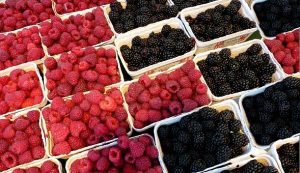Extreme drought during this season significantly reduced the production of many fruit species, especially raspberries, blackberries and walnuts. In addition to the drought, the late spring frosts also had a negative impact on the yield, leaving some areas without a crop of plums, apricots, cherries and other fruits. Dr. Aleksandar Leposavić, an expert in fruit growing from the Institute of Fruit Growing in Čačak, spoke. He states that this year’s raspberry production amounted to slightly more than 40,000 tons, which is comparable to 2012, when a record low 37,000 tons were produced due to drought.
However, the situation has further worsened this year due to economic uncertainty, a smaller number of producers and a working-age population. This will have a negative impact on raspberry production in the future as well. Serbia, which for years was the leading producer of the highest quality raspberries in the world, is now facing serious problems in raspberry production, and even competitors such as Poland and Chile cannot look forward to this situation due to the global deficit of quality raspberries. These problems have created uncertainty among fruit growers, who are increasingly questioning the future of their orchards, as their orchards bring them less and less income.
Raspberries and blackberries have a similar problem
Orientation to the Russian market and problems with placement in that country made the situation even more difficult, especially for strawberry producers, who reduced their interest in raising new plantations. Raspberry production has long suffered due to unregulated relations between producers and buyers. At the same time, a large number of producers have not yet collected the delivered raspberries. Because of this, many have reduced the level of investment, which further contributed to the poor condition in this branch of agriculture.

The situation with blackberries is similar, with modest investments and low purchase prices. Also, highbush blueberry producers achieved lower prices, especially on foreign markets. In previous years, blueberries had an expansion, because Serbia became a significant producer of this fruit in the European framework. However, problems with placement and competitiveness reduced the expected profits.
Leposavic points to the serious challenges facing fruit growing in Serbia. Drought, climate change and market problems increasingly affect the sustainability of production. This leads to a general decrease in yield and quality. In this context, fruit growers must adapt to new conditions, but also work on the regulation of market relations in order to enable the survival and further development of fruit growing in the country.
Source: AgroTV
Source: boljazemlja.com


